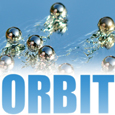Working with multimedia: Difference between revisions
m (subjects, ages, types) |
No edit summary |
||
| (One intermediate revision by the same user not shown) | |||
| Line 9: | Line 9: | ||
|subject= Teacher Education, Secondary | |subject= Teacher Education, Secondary | ||
|resourcenumber=TE0029 | |resourcenumber=TE0029 | ||
|age= KS4, | |age= KS4, KS5, KS3, Higher, Secondary | ||
|content=A course based around the action research cycle, looking at the use of multimedia in education. | |content=A course based around the action research cycle, looking at the use of multimedia in education. | ||
|strategy= | |strategy= | ||
|Learning Objectives='''Professional and reflective practitioner skills''' | |Learning Objectives='''Professional and reflective practitioner skills''' | ||
At the completion of this course, students should be able to: | |||
* understand how to use the e-skills Staffroom to allocate activities to learners and assess uploaded content from learners, | |||
* understand how testing and change management activities should be incorporated into the project and their contribution to the completed product, | |||
* work with learners to evaluate the finished product and identify action plans for improvement of it, | |||
* identify areas where personal, learning and thinking skills can be developed and assessed within the multimedia unit. | |||
'''Practical skills''' | |||
At the completion of this course, students should be able to: | |||
* work with learners to create a project plan based on a client brief and to undertake audience and competitor research, | |||
* work with learners to build a website with images, text, audio and video, | |||
* apply the assessment criteria for the appropriate awarding body to learners’ outcomes generated by activities in the e-skills UK resources, | |||
* recognise and assess the functional skills demonstrated by learners as they complete tasks and activities in the multimedia unit. | |||
'''Knowledge and understanding''' | |||
At the completion of this course, students should be able to demonstrate: | |||
* an understanding of how to use the e-skills Staffroom teaching and learning resources, | |||
* an understanding of how students can upload outcomes from each activity and task to the Staffroom for assessment purposes, | |||
* an understanding of the mapping of the Diploma in IT specification to the two projects available as learning journeys for the multimedia unit, | |||
* an understanding of how to assess the process of creating a multimedia product through the completion of a learning journey. | |||
'''Cognitive skills''' | |||
At the completion of this course, students should be able to: | |||
* identify the particular challenges of the initiation and closure phases of the multimedia learning journey and reflect upon strategies to support students through the tasks related to these phases, | |||
* identify opportunities to work with local employers to create a suitably explicit and well specified client brief that can be addressed by students and associated with a project plan. | |||
|additional resources= | |additional resources= | ||
|useful information= | |useful information= | ||
Latest revision as of 18:26, 31 January 2015
- Blog skills for subject specialists
- Copyright: keep it legal
- ESafety KS1
- Getting a buzz out of blogging
- ICT support in education (practitioner)
- Introduction to games
- Learning platforms all aboard
- Learning together developing wikis
- Learning together introducing wikis
- Making games and motivating learners KS2
- Multimedia skills and applications
- Researching and evaluating a digital game for the classroom
- Sharing ideas - developing wikis (primary)
- Sharing ideas introducing wikis
- The potential of technology
- Using the game Spore to motivate learners KS3
- Website development skills and applications
- Working with multimedia
- Wow them with wikipedia
- Writing using multimodal approaches KS1
- Writing using multimodal approaches KS3
About. A course based around the action research cycle, looking at the use of multimedia in education.
Pedagogical content. In this unit, learners develop an understanding of contemporary digital media and how it applies to communication and entertainment ICT(i)s. This secondary course will show teachers how to use the e-skills(topic) teaching and learning resources for this course to deliver the module in 60 teaching hours. (edit)
| Resource details | |
| Title | Working with multimedia |
| Topic | [[Topics/Multimedia|Multimedia]], [[Topics/E-skills|E-skills]] |
| Teaching approach | [[Teaching Approaches/|]] |
| Learning Objectives | Professional and reflective practitioner skills At the completion of this course, students should be able to:
Practical skills At the completion of this course, students should be able to:
Knowledge and understanding At the completion of this course, students should be able to demonstrate:
Cognitive skills At the completion of this course, students should be able to:
|
| Format / structure | Various online activities. |
| Subject | [[Resources/Secondary|Secondary]], [[Resources/Teacher Education|Teacher Education]] |
| Age of students / grade | [[Resources/KS5|KS5]], [[Resources/Secondary|Secondary]], [[Resources/Higher|Higher]], [[Resources/KS4|KS4]], [[Resources/KS3|KS3]]
|
| Related ORBIT Wiki Resources | |
| Other (e.g. time frame) | Duration of the course: 8 hours over six weeks. |
| Files and resources to view and download | http://www.vital.ac.uk/community/mod/oucontent/view.php?id=1454. Users must register with the VITAL website (free registration) before they can access the resource.
|

